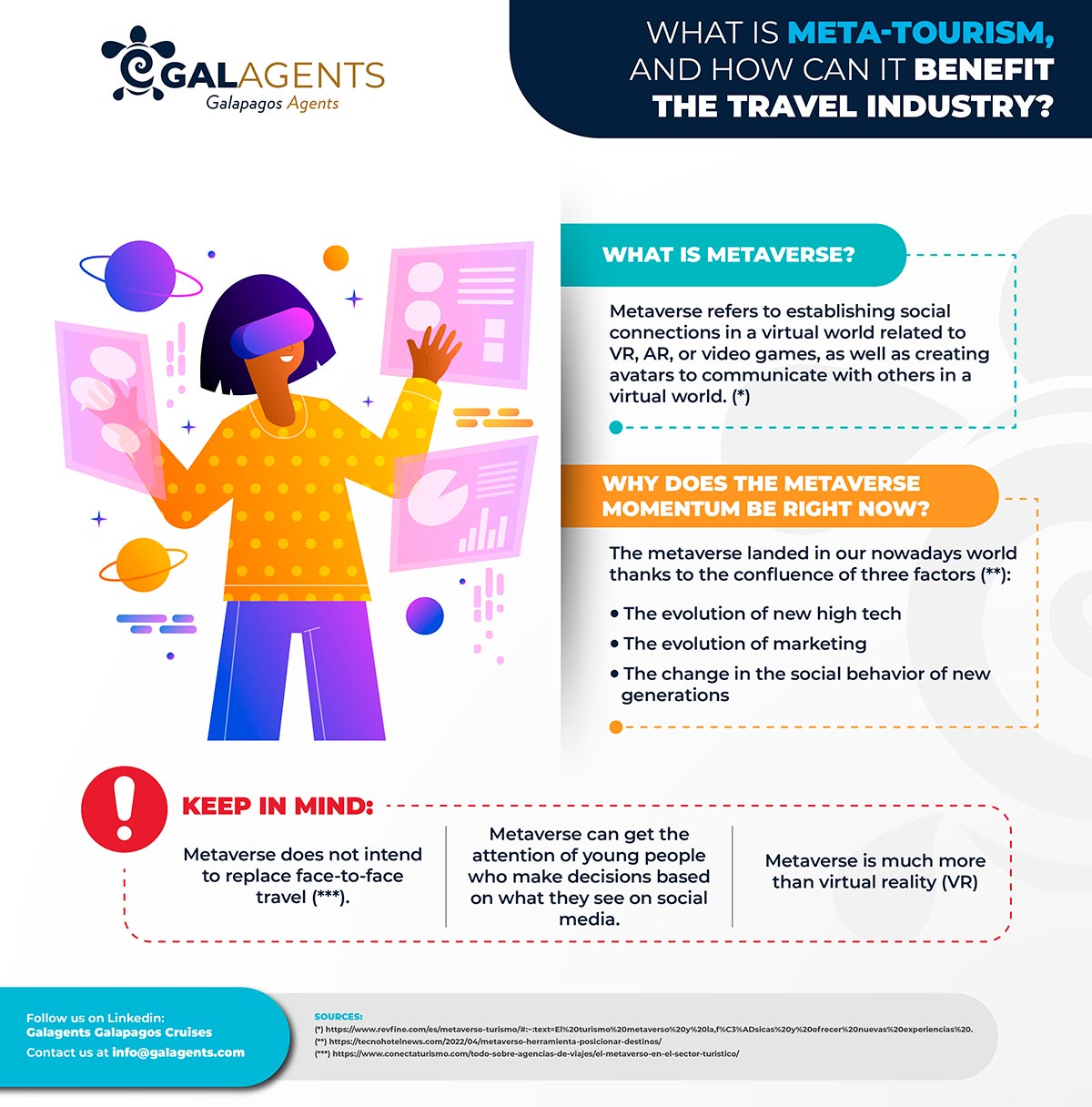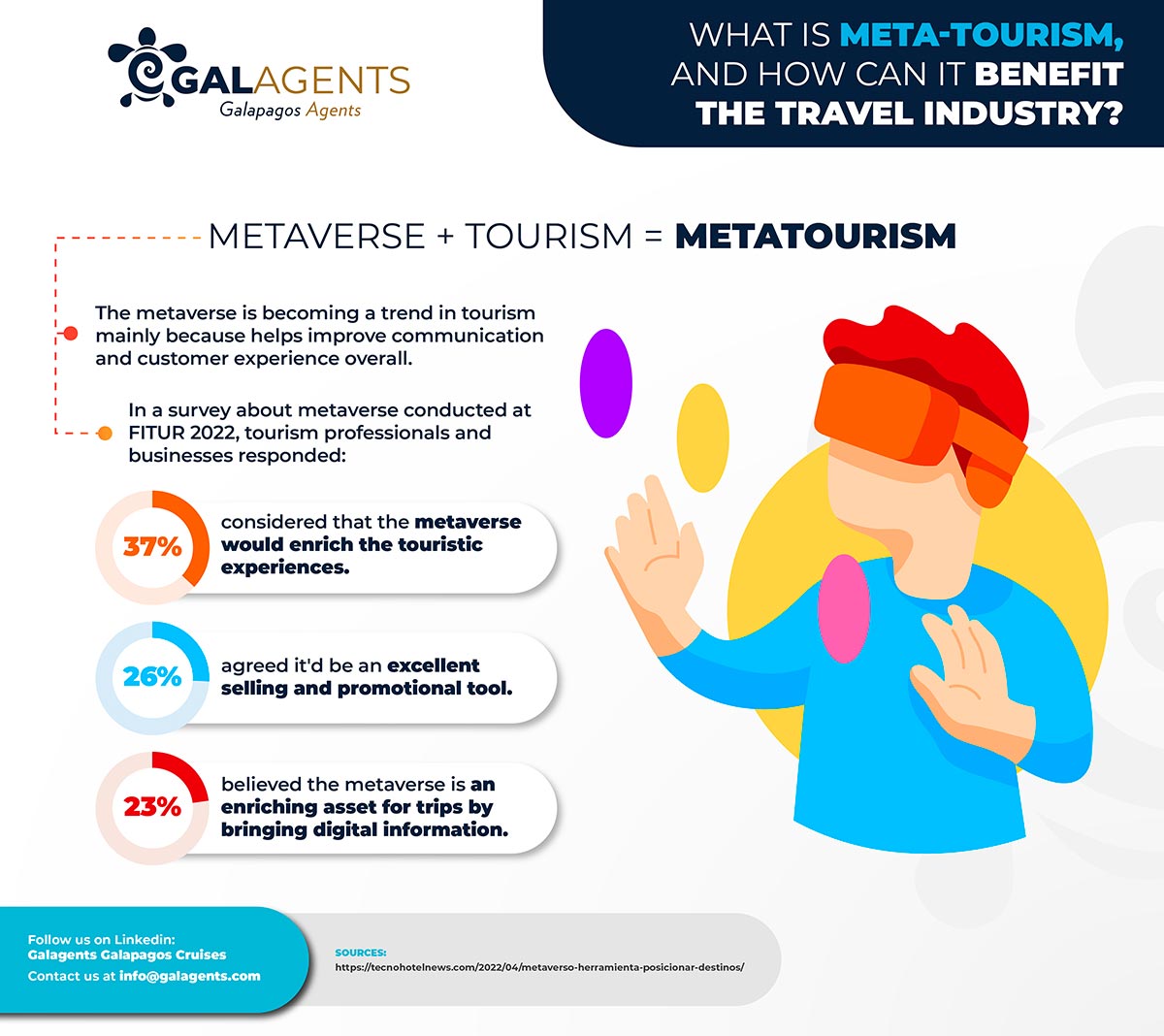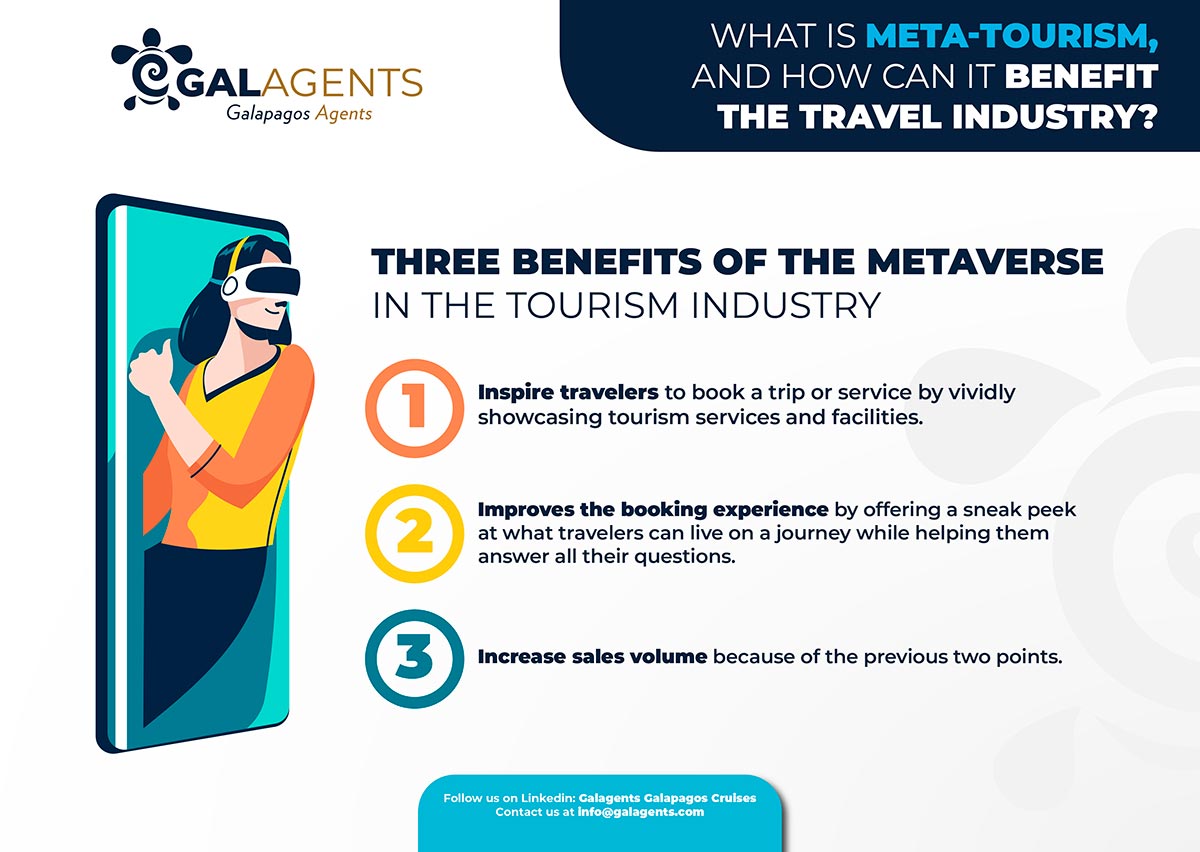The metaverse’s first appearance in our world was in the 80s. Still, it was the announcement of Facebook to develop a metaverse that rocketed the online search of this term to understand this tech trend and identify if there are any business opportunities.
However, aside from the question about what metaverse is, there is another one related to the tourism industry: the option to use the metaverse in tourism and if it will replace face-to-face trips. These and many other questions we’ll be answering in this article.
What is metaverse?
According to revfine.com, metaverse refers to establishing social connections in a virtual world related to VR, AR, or video games. It also refers to creating avatars to communicate with others in a virtual world. Conectaturismo.com claims that the metaverse does not intend to replace face-to-face travel.
As TechnoHotel News mentioned, the metaverse landed in our nowadays world thanks to the confluence of three factors:
- The evolution of new high tech
- The evolution of marketing
- The change in the social behavior of new generations

Then, the metaverse can get the attention of young people who make decisions based on what they see on social media.
It’s important to highlight that the metaverse is much more than virtual reality (VR) because it creates an interactive virtual world in which VR can be part, but not necessarily. In tourism, VR can be an outstanding possibility to facilitate the tourism offer within the metaverse.
Metaverse + Tourism = Metatourism
The metaverse is becoming a trend in tourism mainly for its importance in improving communication and customer experience overall.
People’s traveling needs and the restrictions we all faced due to the pandemic impulse the development of VR and AR technologies in the travel industry. Now, the metaverse can replace some ways of traveling physically without affecting the industry without replacing it.

“Metaverse tourism and tourism technology are helping to change the relationship between businesses and their customers by bridging physical distances and offering new experiences. In particular, the metaverse concept provides opportunities to inspire customers and provide valuable insights that are likely to increase reserves.” (revfine.com)
Indeed, this year, the international travel trade show FITUR conducted a survey about metaverse and tourism, getting the following results:
- 37% considered that the metaverse would enrich the touristic experiences.
- 26% agreed it’d be an excellent selling and promotional tool.
- 23% believed the metaverse is an enriching asset for trips by bringing digital information.
Source: https://tecnohotelnews.com/2022/04/metaverso-herramienta-posicionar-destinos/
Three benefits of the metaverse in the tourism industry

1. Inspire travelers to book a trip or service
Tour operators, hospitality companies, transportation, and all the services related to the travel industry can vividly showcase their services and facilities. So, after interacting with the metaverse, people may feel inspired to book the services.
2. Improves the booking experience.
The opportunity to have a sneak peek close to the experience can facilitate the booking journey by letting the customer know how the facilities, service, or experience is. Metaverse can help them answer all the questions that they could have before placing the booking.
3. Increase sales volume.
This is the result of the previous two aspects. After being engaged by the AR/VR experience and having an easy booking journey, the sales volume can rocket.
Do you want to download all the infographics? If so do it here
What does meta-tourism look like?
Metaverse offers an immersive and realistic experience for travel fairs and expos, opening the door to those clients that cannot travel for an event.
The technology has been highly adopted by theme parks, museums, and zoos that offer a realistic experience to users without worrying about all the safety measurements they usually need for the occasion. At the same time, restaurants can provide an immersive culinary experience to encourage commensals to book a table.
A great example of how the metaverse works to promote a destination is Benidorm. The Spanish Mediterranean destination has set its metaverse to promote this beach city worldwide.
How does it look like Benidorm’s metaverse? Find it out in this video:
To conclude, meta-tourism came to stay, even though there is no clear answer yet to how this type of technology can be accessible to agencies and tourism professionals. However, the metaverse is bringing an evolution in customer experience and communication between tourism companies and travelers. It offers opportunities to sneak peek at the travel experiences and facilities beforehand, helping to smooth the booking resistance travelers usually have when planning a trip to an unknown destination. In the end, meta-tourism can engage young travelers and tech-savvy who are willing to live this virtual immersion in tourism services.
If you want to dig more into this topic, you can watch the following webinar (in Spanish) about “gamification and metaverse applied to tourism,” developed by Segittur.

